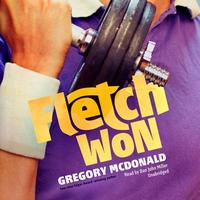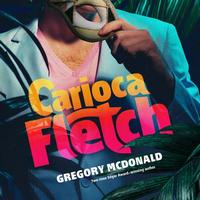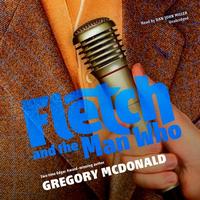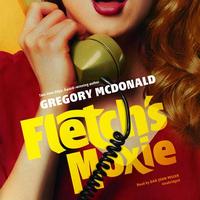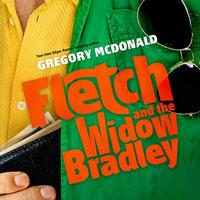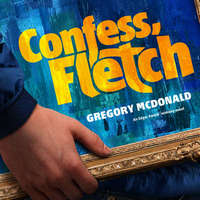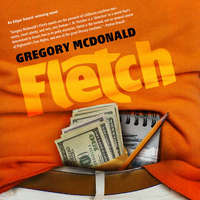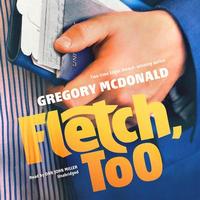 |
Fletch, TooGregory McDonald, Dan John Miller (Narrator) Unabridged Audiobook, 5 hrs., and 43 mins. Read: August 21-22, 2019 |

Up to this point, we know practically nothing about Fletch’s personal life—he’s been married (and divorced) twice and engaged once or twice in addition to that. He’s carried on an on-again/off-again relationship with Moxie Mooney. Served with valor in the Army, made a couple of good friends there. That’s pretty much it—most of what we know about Fletch is about his professional life—and then the amateur sleuthing/investigative journalism he’s done since he didn’t kill Alan Stanwyck. We know next to nothing about his family, his childhood, and so on.
In Fletch, Too McDonald decides to fix that. Picking up right after Fletch Won (like a day or two after) with his first wedding, the revelations start right away. We meet Fletch’s mother, a mystery novelist of some renown (but perhaps not of the highest caliber). After the ceremony, he’s handed a letter from someone claiming to be his father. Fletch had been told that his father had “died in childbirth,” so he’s taken aback by this. The letter describes (briefly) why his father had not been around for his life and that he’s “mildly curious” about his son. If Fletch is at least “mildly curious” about his father, he’s invited to visit him in Nairobi for their honeymoon, tickets are enclosed.
More than mildly curious, and driven to get some answers (or at least a good story), the two hop that plane (bringing their luggage and skis packed for a trip to Colorado). At this point, it stops being a standard Fletch novel and becomes something more akin to Carioca, Fletch. Before they leave the airport, Fletch witnesses a murder (unbeknownst to the murderer).
Fletch makes a couple of attempts to investigate the murder, but due to circumstances, a language barrier, police not given to outsiders’ help, and the lack of anything to go off of, he doesn’t get far. In fact, minor spoiler, the only reason Fletch “solves” the murder is that he recognizes the killer toward the end of the book. Which makes for a fairly unsatisfying “mystery” novel.
Where this book gets interesting is as Fletch and his wife meet some locals, explore the city, and meet a colleague of his father’s. We’re treated to a look at the culture, legal system (or lack thereof), history and some speculative Archeology about the area. It’s interesting—but it feels more like McDonald had an interesting vacation, read some good books on the region and/or had some great conversations with people from Nairobi and wanted to share what he’d learned (again, see, Carioca, Fletch).
I think I appreciated this more than the other non-standard Fletch because 1. I came in with low expectations (remembering how little I liked it) and 2. the supporting characters are more interesting.
At this point, I assume (and am supported by experience) that Miller will do a capable job with the Narration and he helped me enjoy the experience.
This is one for completists, for those who are curious about Fletch’s backstory, or for those who have a hankering for learning about Kenya. It’s not a bad book, it’s just not as good as it should be.




